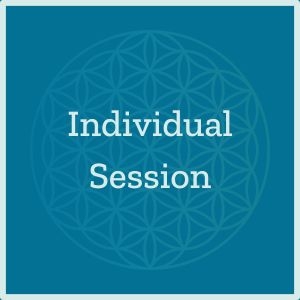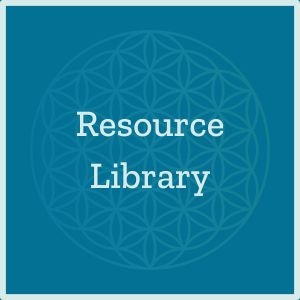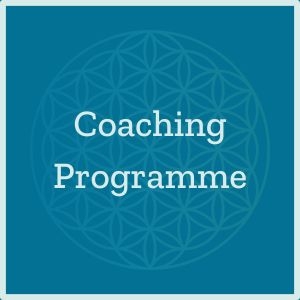Wellbeing Philosophy
Self-Realization through Mind-Body Health
Welcome to my Wisdom & Wellbeing Hub
These are the 3 main themes in this hub:

Spiritual Awakening
Embodied Philosophy
Holistic Health
Exploring consciousness
Self-realization
Integrated spirituality
Personal transformation
Meaningful life
Philosophical questions
Mindfulness & self-awareness
Holistic therapies
Health & wellness coaching
Developing Your Wellbeing Philosophy
What is your wellbeing philosophy?
Your wellbeing philosophy refers to your fundamental worldviews about life. It includes anything which has the potential to impact your health; including your physical, emotional, mental, spiritual, financial, and social wellbeing.
Here are a few examples of what your wellbeing philosophy can include:
- Your fundamental thoughts and beliefs about health, therapies, and healing
- The way that you choose to live your life, and how this impacts yourself and others
- Your spiritual or religious beliefs about life, death, God, loss, and suffering
- Your ability to see through experiences, and to perceive the true nature of reality
- The active process of contemplating life and developing more wisdom
Why is your philosophy for health important?
Your wellbeing is directly influenced by your worldview, and this is created through your personal life experiences. But this conditioning is often hidden beneath your conscious awareness. As a result, when you encounter problems which are misaligned with your fundamental beliefs, it can show up as stress, overwhelm, trauma, or illness.
Whilst medical interventions can be helpful for many of these situations, they can also be limited if your issue involves anything which lies outside of a mainstream approach to health. For example, having to deal with human issues such as violence, war, poverty, judgement, disability or life-altering illness. Or experiencing situations like bereavement, loss, or facing death. Or when you have a different metaphysical worldview, and you believe that consciousness, rather than physicality, is the fundamental nature of life.
By exploring the deeper nature of reality, you can become more able to reduce stress, connect more deeply with life, improve your wellbeing, and make a positive impact in the world through sharing your wisdom.
How can developing embodied wisdom help you in daily life?
Exploring the mind-body connection, the nature of who you are, and your place in the world, are not just intellectual activities. They can also help you with these things:
- Reducing stress-related conditions
- Letting go of unhelpful beliefs
- Becoming more self-empowered
- Dealing with pain, fatigue, or illness
- Improving your relationships
- Managing high energetic sensitivity
- Navigating difficult life challenges
- Understanding human behaviour
- Developing real spiritual awakening
- Dealing with loss or bereavement
- Answering philosophical questions
- Being at peace with all life experiences

Using Health as a Catalyst for Self-Realization
The mind-body connection is a gateway for awakened wisdom
Exploring the nature of who you are and your relationship with life can not only help you to experience improved wellbeing, it can also be a gateway for understanding the very nature of existence. When we encounter life challenges such as illness, disability, stress, trauma, bereavement, or loss, it causes us to question things we previously held to be true, and to let go of the things that no longer work. As our ideas and habits are challenged and broken down, we have an opportunity for creating new, more accurate insights into life, and embracing more wisdom in our lives. Developing your wellbeing philosophy embraces this process of change.
When you start on this path, it usually begins with some type of catalyst, such as an emotional breakdown, major life challenge, or going through a dark night of the soul. Often, this can be quite traumatic. But it can also occur because of more routine situations; perhaps you are an empath, or someone who is very sensitive to emotional energies. Maybe you have experienced personal illness and found holistic health practices connected you with a new approach to wellness. Or you perhaps have had spiritual experiences which have put you onto the path of a wisdom seeker.
At the centre of this journey is the mind-body connection. Many people begin by questioning how thoughts impact your physical health, then they start to work on somatic techniques for releasing emotions, which in turn leads to increased energetic awareness, questions about consciousness, and then onto seeking answers about spirituality and existence... Each layer takes you even deeper into an inner journey of self-awareness.
No matter where you begin on this journey, the path is one which can eventually take you through to self-realization, enlightenment, or awakening to your true nature. It's just a question of how deeply you want to explore it.
Comparing pathways of self-realization
There are two main interpretations of what self-realization is. To summarise very briefly these are:
Western perspective: Self-realization is often viewed as the process of optimising your mind, beliefs, and habits, so that you can live your life to the very highest level of your own potential, and be the best version of yourself. This pathway usually focuses primarily on an individual perspective, providing personalised guidance on how you can be successful in life. So, it may include topics like optimising the social, financial, behavioural, mental, emotional, and physical aspects of your life.
Eastern perspective: Whilst Eastern approaches also include all of the previous topics, Self-realization here is commonly associated with the wisdom traditions, and centres around concepts such as spiritual awakening or enlightenment. So, this pathway may focus more on things like the nature of reality, the existence of God, spiritual practices, the primacy of consciousness, and the unified nature of existence. Plus topics around life and death, ethical behaviour, the relief suffering, and creating a meaningful life.
I work with people who are exploring both of these pathways, since they are not mutually exclusive. I do so from a grounded perspective where we question many of the popular beliefs which surround these topics, without any religious or spiritual affiliations, and where you are helped to develop your own unique perspective and answers.

Integrating Wisdom and Wellbeing
One reason that many people get stuck in improving their wellbeing is because they do not take a fully holistic approach towards it. You need to take a well-rounded, genuinely holistic approach to developing embodied wisdom.
This involves exploring life from these 3 perspectives:
The 3 stages of evolving wisdom
There are three levels of insight that are needed to work through in order to understand human experience, and to allow more wisdom to evolve in your life:
- Individual: Exploring personal growth, transformation, and self-awareness.
- Collective: Contemplating relationships, interconnectedness, and your environment.
- Existential: Reflections on reality, spirituality, and the nature of life.
Individual: Developing your own philosophy for health is an important component of self-realization. Most therapies and wellbeing services focus on the individual level, where you are generally held fully accountable for your experience of life. But once you reach a certain level of self-awareness, you begin to recognise that whilst there are many benefits to these approaches, they are also incomplete. People do not live in a vacuum - they are constantly exposed to a variety of other influences which impact their wellbeing, and over which they often have little or no control.
Collective: Things like cultural beliefs, social norms, political influences, or environmental issues often have a much deeper impact on us than we may initially realise. Because we are so accustomed to their presence, these things may be virtually invisible to us, or exist beneath our conscious awareness. This hidden level of stress may account for a lot of mental and emotional anguish - but this can be easily dissolved through deeper reflections and insights into life.
Existential: The spiritual nature of our existence and how this can impact the level of suffering we experience is another area which is often overlooked within a medically-orientated approach to wellbeing. Spirituality can take on a primary level of importance when it comes to dealing with problems like loss, bereavement or life-threatening illness, but it can often be dismissed as being non-scientific or having lesser importance than physical concerns. However, by taking a well-grounded approach to spirituality, developing your own insights, and approaching this topic from a deeper perspective, it is possible to find the answers you are seeking to resolve these existential concerns.
Health is a Catalyst for Self-Realization
Your philosophy for health is your unique perspective on life, wellbeing, and how you choose to be in the world.
It incorporates your beliefs, ethics, spirituality, purpose, and your views about the nature of life itself.
This philosophy impacts your own wellbeing, and is the foundation on which wisdom evolves.
Integrating Wisdom & Wellbeing into Your Life
My coaching programmes are for heart-centred people who want to explore their wellbeing philosophy on a deeper level,
and to integrate holistic health practices into their life for more peace, health, and happiness.
They are primarily for people who are empaths, caregivers, healing practitioners, spiritual workers, and wellbeing service providers
who want to explore a holistic approach to life and health.
You are also welcome to join if you are a wisdom seeker who wants to integrate holistic health into your own life or work.
There are 3 main topics on which my coaching is based:
Holistic health
Spiritual awakening
Embodied philosophy
As an empathic person who helps other people, whether in a personal or professional capacity, you can only do so to the extent that you understand life yourself. So, your own evolution is an important factor in being able to support the wellbeing of others.
Here are some of the topics we can explore in my coaching programmes:
Consciousness
Morality
Spirituality
Knowledge
Transformation
Mindfulness
Therapies
Enlightenment
Daniella Saunders - Specialist in Mind-Body Health
MA (Phil), BA (Hons), RGN

Why work with me?
- Lifelong wisdom seeker and explorer of mind-body health
- MA and BA(Hons) degrees in Eastern & Western philosophy, spirituality, and health
- Qualified and experienced health coach and holistic therapist
- Grounded approach to awakening and self-realization
- Can genuinely help you to find the answers you are seeking
Integrate Your Wellbeing Philosophy
If you are a heart-centred person who wants to explore healing, therapies, spirituality, philosophy, or consciousness
on a deeper level, then I invite you to join one of my coaching options.
There are 3 types of support available. You are welcome to book an individual coaching session now,
or join the waitlist for the subscription programmes below....
Single Coaching Session
An online 1-1 call (up to 90 mins)
Explore any aspect of wisdom or wellbeing
Book sessions as needed
1 x £75
Text-Based Q&A with Resources
Meditations, contemplations,
exercises, wellbeing practices
Text-based Q&A support
£47/month
Resources & Monthly Coaching
Resource library:
Meditations, contemplations,
exercises, wellbeing practices
Text-based Q&A support
Plus 1 x consultation/month



